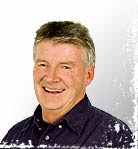 With the United States Open ready to begin this week, the man some Europeans think is the quintessential American is making news across the pond in the birthplace of golf. Donald Trump is in Scotland this week testifying before the equivalent of a zoning board and trying to calm the local furor over his plans to build a monstrous golf resort on a pristine piece of Scottish coastline called Aberdeenshire.
With the United States Open ready to begin this week, the man some Europeans think is the quintessential American is making news across the pond in the birthplace of golf. Donald Trump is in Scotland this week testifying before the equivalent of a zoning board and trying to calm the local furor over his plans to build a monstrous golf resort on a pristine piece of Scottish coastline called Aberdeenshire.In the typical bravado of The Donald, Trump says he plans to build the “world’s greatest golf course,” two of them actually, together with an eight story hotel, 950 timeshare apartments and 500 houses. This is certainly a bit of hyperbole when many would argue the greatest golf course is further down the coast at St. Andrews. Quite a few have been built since the Old Course was finished in 1764.
The local board which originally reviewed Trump’s proposal rejected it because of the impact on a protected environmental site. The chief solicitor at the time, Martin Ford, was then promptly sacked and replaced with someone more sympathetic to development of the site.
Trump claims his motives are not the almighty dollar but to protect the environment and to cherish the memory of his mother who is of Scottish descent. As the poet once said, “Money doesn’t talk, it swears.”
Golf is under some fire lately by the Greens keepers, and I don’t mean the guys who keep the golf courses in tip top shape through the massive use of irrigated water and insecticides. There are about 35,000 golf courses world wide, half of those in the United States, with hundreds more being built each year. Each course uses on average 312,000 gallons of water a day, which comes to about 2200 gallons of water for each golfer for each round. When fresh water is in such short supply, particularly in states like California where the Open is being played, such consumption is difficult to justify. In addition, golf courses apply an average of more than a thousand pounds of pesticides annually or five times more than is used agriculturally, not to mention the amount of chemical fertilizer and weed killer added to the mix.
If you have ever played a course like St. Andrews, or Pine Valley not too far from my office in New Jersey, where the golf is played on a natural landscape, the experience is almost spiritual and far superior to that played on one of those desert monstrosities kept a sickly bright green. Golf needs to stop adding to the environmental problems facing all of us and our children and find the green dead straight ahead.










